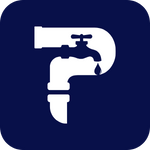Mastering Marketing: A Comprehensive Guide to Boosting Your Business In the highly competitive business world of today, businesses that want to succeed must have an effective marketing strategy. You may greatly increase your visibility & engagement by knowing your target market, developing a distinctive brand identity, and utilizing a variety of marketing techniques. This post will explore the essential elements of effective marketing and offer practical advice to help you grow your company. It is essential to first comprehend your target audience in order to develop successful marketing strategies.
Key Takeaways
- Understanding your target audience is crucial for effective marketing
- Creating a strong brand identity helps differentiate your business from competitors
- Utilizing online marketing strategies can help reach a wider audience
- Leveraging social media platforms can increase brand visibility and engagement
- Implementing SEO techniques can improve your website's visibility and ranking on search engines
This entails figuring out who your ideal clients are, their requirements & preferences, and how they engage with your brand. Performing in-depth market research can yield important information about purchasing patterns, psychographics, and demographics. Social media analytics, focus groups, and surveys are great methods for obtaining this data. You can adjust your marketing messages to appeal to your target audience once you have a clear understanding of who they are.
For example, if millennials make up the majority of your audience, you may concentrate on digital platforms and make sustainability a key component of your messaging. Having a thorough understanding of your audience aids in both selecting the best platforms for engagement and creating pertinent content. The foundation of every effective marketing plan is a strong brand identity.
It includes your brand's voice and messaging as well as your logo & color palette. Customer loyalty is increased & your company can stand out from the competition with a clear brand identity. Establishing your brand's mission, vision, & values should be the first step in any branding endeavor. When it comes to brand identity, consistency is crucial.
| Marketing Strategy | Impact |
|---|---|
| Social Media Marketing | Increased brand visibility and customer engagement |
| Email Marketing | Direct communication with potential customers and lead nurturing |
| Search Engine Optimization (SEO) | Improved online visibility and website traffic |
| Content Marketing | Establishing expertise and trust with valuable content |
| Referral Programs | Encouraging word-of-mouth marketing and customer loyalty |
Whether it's your website, social media accounts, or marketing materials, make sure your visual components and messaging are consistent throughout. Customers' recognition and trust are increased by this consistency. Also, think about how your brand identity reflects the wants and needs of your target market; bringing these aspects into alignment can help you build stronger emotional bonds with clients.
Online marketing techniques are essential for reaching a larger audience in the digital age. These tactics include affiliate marketing, pay-per-click advertising, & content marketing, among others. For example, content marketing entails producing insightful content that speaks to your audience's interests and problems.
Pay-per-click (PPC) advertising is another powerful online tactic that enables you to precisely target particular demographics. You can design customized campaigns that target prospective clients according to their online interests and behavior by utilizing platforms like Facebook Ads and Google Ads. By collaborating with influencers or other companies that cater to a similar demographic, affiliate marketing can also help you reach a wider audience by giving you access to their networks.
Social media platforms have completely changed how companies communicate with their clientele. Facebook, Instagram, Twitter, LinkedIn, and other platforms with billions of users worldwide provide unmatched chances for interaction & brand promotion. Selecting the appropriate social media platforms that suit the tastes of your target audience is crucial to using it successfully. Success on social media depends on producing interesting content.
This can include captivating images, educational films, or interactive surveys that promote user involvement. Also, you can improve in-the-moment interaction with your audience by leveraging features like stories or live videos. Understanding what appeals to your followers and adjusting your approach accordingly can be achieved by routinely examining engagement metrics.
You can boost organic traffic and draw in potential clients who are actively looking for goods or services similar to yours by optimizing your website for relevant keywords. To find terms that are pertinent to your company and have a high search volume, start by performing keyword research. Making sure title tags, meta descriptions, and header tags contain pertinent keywords is one of the on-page SEO strategies.
Moreover, producing excellent content that responds to user inquiries can raise the authority and ranking of your website. The credibility of your website in the eyes of search engines is also increased by off-page SEO tactics like constructing backlinks from reliable websites. A referral program may be a useful tool for leveraging current clients to draw in new ones. You can reach a wider audience naturally by offering incentives to existing clients who recommend friends or family to your company. For successful referrals, think about rewarding them with discounts, freebies, or first dibs on new products.
Make it simple for consumers to tell others about their experiences in order to establish a successful referral program. This can entail sending them special codes or referral links that they can distribute via email or social media. Also, advertising the referral program via a variety of platforms will guarantee that clients are aware of the advantages of taking part.
One of the best methods for communicating directly with customers is still email marketing. While guiding leads through the sales funnel, it enables companies to send tailored messages to their audience. Create a strong email list first by using sign-up forms on your website or social media pages.
Providing rewards like discounts or access to exclusive content can entice users to sign up. To send customized campaigns that appeal to each group, divide up your subscriber list according to their interests or habits. Create attention-grabbing headlines and interesting content that entice readers to act, such as visiting your website or making a download. You can improve your email marketing strategy over time by routinely examining open & click-through rates.
It is crucial to routinely measure and assess the performance of your marketing strategies in order to guarantee their efficacy. Analytical tools like Google Analytics can offer useful information about user behavior, website traffic, and conversion rates. By monitoring these indicators, you can determine which tactics are effective and which require development.
By establishing key performance indicators (KPIs), you can more accurately assess the effectiveness of your marketing campaigns. Metrics like customer acquisition cost (CAC), return on investment (ROI), or customer lifetime value (CLV) may be among them. You can improve the results of your marketing efforts by consistently tracking these KPIs & modifying your tactics accordingly.
In summary, becoming an expert in marketing necessitates a multidimensional strategy that includes knowing your target market, developing a distinctive brand identity, & making effective use of a range of internet tactics. Businesses can greatly improve their visibility and engagement in today's competitive landscape by utilizing email marketing campaigns, social media platforms, SEO strategies, referral programs, and analytics to measure performance. Now is the moment to act!
Compare your present marketing tactics to these recommendations and pinpoint areas that need work. You can set up your company for success in a market that is constantly changing by putting these best practices into practice. Begin now, & you'll see the results of your labor become apparent!
If you are looking to improve your HVAC marketing strategies, you may want to consider implementing effective reputation management techniques. A recent article on plumbing and HVAC reputation management in Shreveport, Louisiana discusses the importance of maintaining a positive online presence to attract more customers. By utilizing tools and strategies to monitor and improve your reputation, you can enhance your marketing efforts and ultimately grow your business.
FAQs
What is HVAC marketing?
HVAC marketing refers to the strategies and techniques used to promote and advertise heating, ventilation, and air conditioning (HVAC) services to potential customers. This can include digital marketing, traditional advertising, and other promotional efforts.
Why is effective HVAC marketing important?
Effective HVAC marketing is important for HVAC businesses to attract new customers, retain existing ones, and stay ahead of the competition. It helps to build brand awareness, generate leads, and ultimately drive sales and revenue.
What are some effective HVAC marketing strategies?
Some effective HVAC marketing strategies include search engine optimization (SEO), pay-per-click (PPC) advertising, social media marketing, email marketing, content marketing, and local search optimization. Additionally, offering promotions and discounts can also be effective in attracting new customers.
How can HVAC businesses measure the success of their marketing efforts?
HVAC businesses can measure the success of their marketing efforts by tracking key performance indicators (KPIs) such as website traffic, leads generated, conversion rates, customer acquisition cost, and return on investment (ROI). This data can help businesses understand which marketing strategies are most effective and where to allocate their resources.
What are some common mistakes to avoid in HVAC marketing?
Common mistakes to avoid in HVAC marketing include neglecting the importance of online reviews, failing to optimize for local search, not having a mobile-friendly website, and not utilizing social media to engage with customers. It's also important to avoid generic or outdated marketing messaging that doesn't differentiate your business from competitors.






